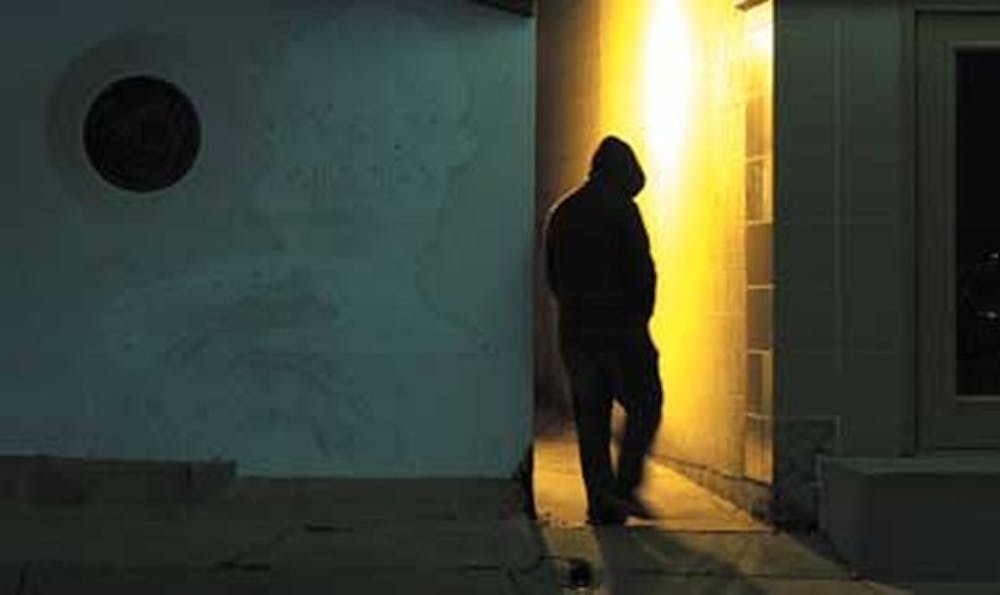The American Medical Association calls sexual assault a "silent epidemic," with 65 percent of attacks going unreported. Add alcohol consumption by college students into that equation, which the AMA says contributes to an estimated 70,000 cases of sexual assault or date rape each year, and that equals a lot of unpunished crime.
Michele Cole, Ball State University's victim advocate, has been helping students and faculty through the Office of Victim Services since March 2007. She works with victims beginning at the start of an investigation and provides guidance and emotional support. Police protocol is to contact Cole if a relationship violence, rape or stalking crime occurs, and she is on call 24 hours every day.
Cole said the fear and shame of being personally violated, as well as wrongly placing blame on themselves, may keep students from reporting their assaults, or at least seeking support afterward.
"There are a lot of students out there who have not come forward. Overall, this is an underreported crime," Cole said.
Gene Burton, director of public safety, said he also wouldn't be surprised if Ball State has many sexual assaults going unreported.
According to the U.S. Department of Justice, 10 times more rapes are reported to crisis lines than are reported to the police. Burton said eight sexual assaults were reported to University Police last year.
Lee Van Donselaar, assistant director for training at the Ball State Counseling Center, said the center sees sexual assault victims frequently. About 2 percent of students who were counseled last year at Ball State indicated during their intake that their concern was rape or sexual assault.
"It is not uncommon for students to disclose rape or sexual assault at a later point in time, though, after they've developed a degree of comfort and trust in the counselor-client relationship," he said.
A dangerous social lubricant
Cole said alcohol is the No. 1 date rape drug. It can be extremely dangerous to mix sex and alcohol because it blurs the line of consent, she said.
"You need to have clear and explicit consent with that partner," Cole said. "If you don't have the confidence to have a conversation with that person to obtain verbal consent, then you probably shouldn't be engaging in sex."
Van Donselaar also said approximately 75 percent of perpetrators of sexual assault and 55 percent of victims were drinking alcohol prior to an assault.
The Kinsey Institute for Research in Sex, Gender and Reproduction at Indiana University in Bloomington studied alcohol and its use as a date rape drug. Rapists can use alcohol to make it less likely the victim will resist sex or remember the assault. They also target women who are alone or they will try to put the victim in an unfamiliar situation. Drunk victims may also tend to blame themselves for an assault.
"I think it is fairly common for people to use the excuse of 'we were all drunk,' but one person's perception is different than another's," Cole said. "If someone is unable to give consent if they are intoxicated, then the students need to realize that under the law if you are intoxicated, you are unable to give consent."
Raising awareness
Cole said Ball State has taken a proactive approach to sexual assault, mainly by having a victim services office. In January 2008, the office lost its federal funding and was in danger of being shut down. The university made the decision to keep it open, using portions of some student fees to cover the office's costs.
"Having an Office of Victim Services tells that Ball State cares about their students," Cole said. "They recognize that students may come to campus and be victimized. They are being proactive."
Kay Bales, vice president of student affairs, said it is Ball State's goal that students find the available campus resources helpful and the individuals they encounter sensitive and caring.
In addition to counseling services, students can file a report through the campus judiciary system within the Office of Student Rights and Community Standards without filing a police report. As an alternative, Ball State sexual assault survivors can seek to show that another student violated the Code of Student Rights and Responsibilities.
"The offense can be brought before Ball State's Judicial Review Board and penalties can range from lesser sanctions to expulsion from school," Van Donselaar said.
Peer victim advocates
Victim Services organized a group of peer victim advocates last spring, an initiative that has been continued this semester. The advocates are available to respond to assault, relationship violence and stalking other students have suffered. Each member trains for 80 hours through workshops, court observation and police ride-alongs.
Cole said students, in some cases, may feel more comfortable talking to another student. Students might believe an adult will pressure them into reporting the crime, something she said not all survivors are prepared to do. Students looking for more information about the peer victim advocates can call 285-7844 or visit the Facebook group "BSU - Peer Victim's Advocates Team!"
Van Donselaar also said if someone tells you they have been raped or sexually assaulted, it is important that you listen to them, avoid questioning them, help them make choices and find resources so they can begin to heal from the trauma.
Victims of sexual assault may be confused or unsure of how to proceed after a trauma or may be unable to function normally due to disturbances in relationships and "flashbacks" of the traumatic event. They may also experience anger, depression, guilt and fear. Counseling can help victims of a sexual assault move on with their lives and heal emotionally.
Students do not have to file a police report to have a forensic sexual assault kit done at their local hospital, but they must get the kit done within 96 hours after the assault, Cole said. These kits are free and can be done anonymously.
"It's a very personal choice. I want victims to come forward, but it's their choice."



